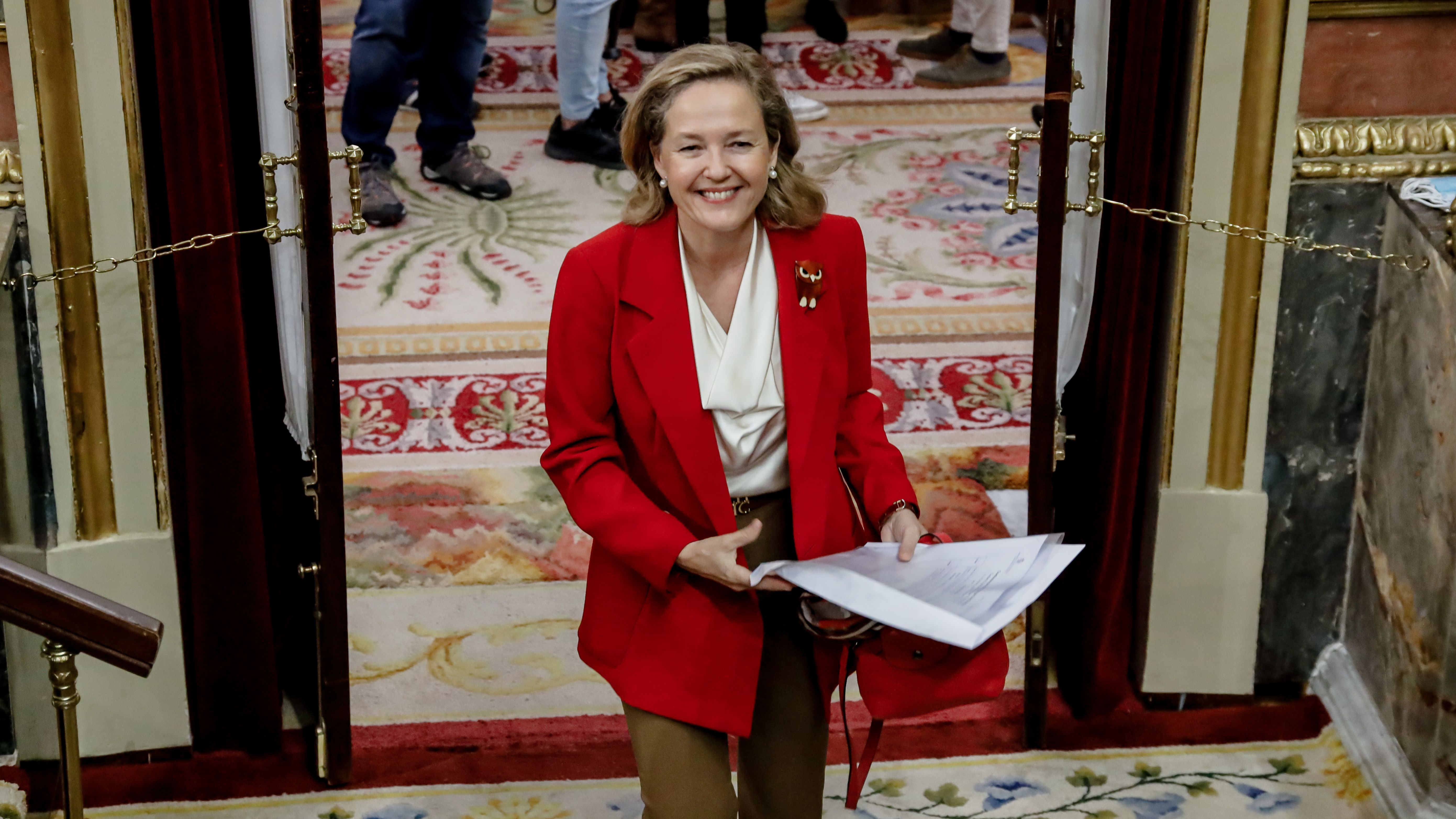The government has included in its negotiations with the banking sector mortgage help for families middle class affected by the rise in the Euribor. As confirmed by the first vice president of the government, Nadia Calviño, this proposal is aimed at providing coverage to those middle-class families whose finances may have been affected by the rapid increase in interest rates and who are at risk of vulnerability.
“We are determined that there is aid from the financial sector for two types of families: on the one hand, improving the protection of the most vulnerable families (…) and we want to extend it to those middle-class families who may be at risk of vulnerability. due to the rapid rise in interest rates of interest, “Calviño said in an interview with RNE’s Las Mañanas.
The aim of the proposal that Calviño “negotiates almost daily” with the bank is to “protect” all those people whose mortgage represents more than 40% of their monthly income. And this is striking in our country over a million families.
The minister therefore partly shares the diagnosis of the Second Vice President and Minister of Labor, Yolanda Díaz, which defined the proposal of the banking institutions as “insufficient” and asked for moratoriums to freeze all those families who have been affected by the increase in the price of the loan. In part, we say it, because Calviño has made it clear that the extension of those aid he negotiates with the bank is for middle-class families at risk of vulnerability.
agreement in the coming days
The bank has put the extension of the duration of variable mortgages by up to five years hired by vulnerable families who have become more expensive by more than 30% due to the increase in the Euribor. A “good starting point” for Calviño which, however, called for more measures to “flatten the interest rate curve”, such as the achievement of a “more affordable” quota for families or that there is no increase in financial charges due to the lengthening of the terms. “We are trying to go further,” she assured.
The first vice president trusted this an agreement will be reached “in the next few days” and denied that the negotiations have been hampered by the parliamentary elaboration of the temporary tax on the sector, with which the government wants to collect about 3,000 million euros in two years. He defended that the relationship between the economy and the bank is “very constructive”, while acknowledging that the institutions “are not happy and that they defend their interests. We must understand this”.


